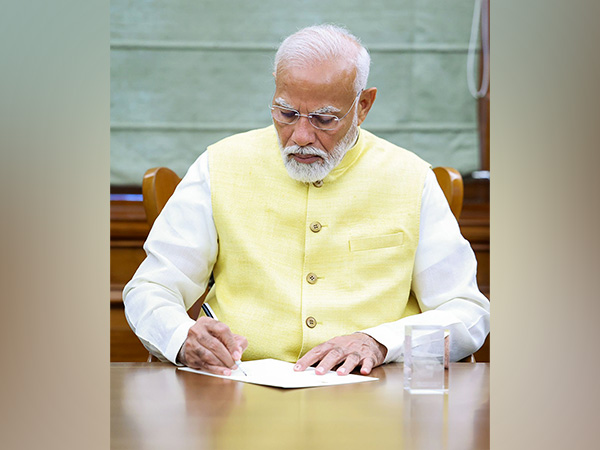Modi 3.0 Government Rolls Out Major Reforms in First 100 Days
In its initial 100 days, the Modi 3.0 government has launched numerous initiatives to benefit farmers and the middle class. These include an increase in MSP for Kharif crops, approval of the Polavaram Irrigation Project, major agricultural schemes, tax relief for salaried individuals, and the launch of the Unified Pension Scheme.

- Country:
- India
After assuming office for the third consecutive term, the Modi 3.0 government has introduced significant initiatives in its first 100 days, aimed at improving the lives of farmers and the middle class. Prime Minister Narendra Modi, who was sworn in for a third term on June 9, began by releasing the 17th installment of the Pradhan Mantri Kisan Samman Nidhi (PM-KISAN) scheme.
Government sources revealed that Rs 20,000 crore has been distributed to 9.3 crore farmers under PM-KISAN, with a total of Rs 3 lakh crore disbursed to 12 crore 33 lakh farmers to date. Additionally, the Minimum Support Price (MSP) for Kharif crops for 2024-25 has been increased, benefitting farmers by approximately Rs 2 lakh crore. The Modi-led administration also approved the Polavaram Irrigation Project in Andhra Pradesh with an allocation of Rs 12,100 crore.
The Centre has greenlit seven major schemes with an overall outlay of Rs 14,200 crore, including the Digital Agriculture Mission to boost agricultural productivity. The draft of a new National Cooperative Policy is in its final stages. An MoU between the National Cooperative Organics Limited and the Uttarakhand Organic Commodity Board will ensure organic produce from Uttarakhand farmers is purchased at favorable rates.
Furthermore, the government plans to convert ethanol production units in cooperative sugar mills into multi-feed facilities to enable ethanol production from maize. The Centre has also removed the Minimum Export Price on onions and basmati rice and reduced export duty on onions from 40% to 20%, likely benefiting farmers.
New agricultural initiatives and development projects worth Rs 3,300 crore have been rolled out in Jammu and Kashmir. During a visit to Varanasi in June, PM Modi honored 30,000 'Krishi Sakhis' for their contributions to agriculture.
The Centre has approved a Rs 2,000 crore 'Mission Mausam' to create climate-resilient infrastructure and launched 'Agrisure,' a fund aimed at supporting agriculture start-ups and rural enterprises. For the middle class, tax relief measures include a no-tax threshold for income up to Rs 7 lakh and potential savings of Rs 17,500 in taxes for salaried individuals, along with an increased standard deduction and higher exemption limits for family pensions.
The Unified Pension Scheme will grant government employees with 25 years of service 50% of their average basic salary as a pension. Further, the 'One Rank, One Pension' scheme will be implemented for security forces. Under the Pradhan Mantri Awas Yojana, a total of three crore houses have been either built or approved for construction. The installation of solar energy systems and the introduction of an environmentally-friendly e-bus public transport system are also part of the government's green initiatives.
(With inputs from agencies.)










